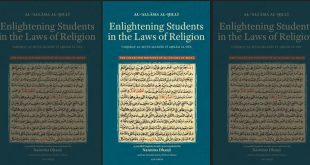In this article, the writer investigates how Shaykh al-Mufīd approached juristic authority or delegacy in early Shia thought in the fourth/tenth century.
The fourth/tenth century Shia theologian and jurist al-Shaykh al-Mufid discusses juristic authority in his main work. Because of his influence in Shia intellectual history, al-Mufid is an ideal case for exploring the quest for jurist authority and the nature of leadership in early shia community. As a theologian, al-Mufid played a significant role in the consolidation of Shia post-occultation theology, in which the doctrine of occultation is a central point. As a jurist, al-Mufid was also a religious leader of the Shia community of his time. The represents a turning point in the transition from the traditionalist list school of Qom-the main figures of which were al-Kulayni- to the rationalism school of Baghdad of which he was the main representative.
In this paper, the writer investigates how Shaykh al-Mufīd approached juristic authority or delegacy in early Shia thought in the fourth/tenth century. I explore Shia juristic authority in light of the doctrine of deputyship to suggest that deputyship and therefore the juristic authority that is based upon it were apolitical in Mufīd’s approach. There is no clear evidence in Mufīd’s writings that he regarded the jurists as possessing both the power to judge in the community and to administer the affairs of its members – that is to be a political leader. Deputyship for Mufīd is limited to judgeship.
Bibliographic Information
Title: Struggling with Political Limitation: Shaykh al-Mufīd’s Approach to Shi͑i Juristic Authority
Author: Ali Ahmad Rasekh
Published in: Journal of Shi’a Islamic Studies, Volume 9, Number 1, Winter 2016, pp. 63-94, pp. 63-94
Language: English
Length: 31 pages
 Ijtihad Network Being Wise and Faithful Muslim in the Contemporary World
Ijtihad Network Being Wise and Faithful Muslim in the Contemporary World
